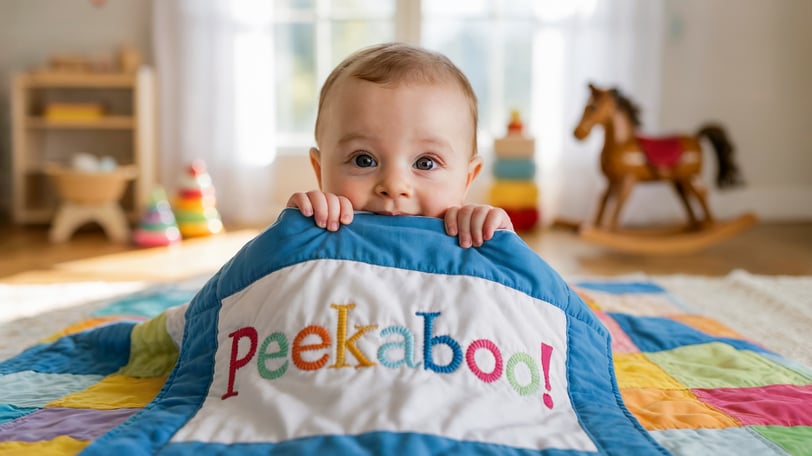Building Strong Bonds: 10 Heartwarming Activities for New Parents and Infants
Explore essential bonding activities for new parents and infants, fostering emotional connection and developmental growth through meaningful interactions and shared experiences.


Creating strong bonds between new parents and their infants is not only crucial for the child's development but also enhances the parent-child relationship, fostering trust and security from the very beginning. Engaging in bonding activities helps parents understand their baby's cues and preferences while creating moments of joy and connection. In this blog post, we'll explore various bonding activities that new parents can enjoy with their infants, promoting emotional development and strengthening family bonds.
Importance of Bonding Activities
Bonding activities play a pivotal role in the early stages of an infant's life. They create a sense of security and attachment, which are fundamental for emotional and social development. For parents, bonding activities offer opportunities to respond to their baby's needs, build confidence in caregiving, and develop a deeper understanding of their child's unique personality.
Bonding Activities for New Parents and Infants


1. Skin-to-Skin Contact
Skin-to-skin contact, also known as kangaroo care, is a powerful bonding activity that promotes physical and emotional closeness between parent and baby. It helps regulate the baby's body temperature, heartbeat, and breathing, while releasing oxytocin, the "love hormone," in both parent and child.
2. Baby Massage
Gentle baby massage not only soothes and relaxes infants but also strengthens the bond between parent and child. Use natural oils and gentle strokes to massage your baby's arms, legs, and back, paying attention to their cues for comfort and enjoyment.
3. Reading Together
Reading aloud to your infant introduces them to language, rhythm, and storytelling while creating a nurturing environment. Choose board books with bright colors and simple illustrations, and make reading a part of your daily routine, such as before bedtime or during quiet moments.
4. Singing and Music
Babies are naturally responsive to music and singing. Sing nursery rhymes, lullabies, or your favorite songs to your infant. Use gentle movements or hand gestures to accompany the music, encouraging sensory exploration and engagement.
5. Tummy Time Play
Tummy time is essential for strengthening your baby's neck, shoulder, and arm muscles, preparing them for crawling and other motor skills. Place your baby on their tummy on a soft blanket or play mat and engage them with toys, mirrors, or colorful objects to encourage exploration and movement.
6. Exploring Nature Together
Take your baby outdoors to explore nature's sights, sounds, and textures. Whether it's a walk in the park, a visit to the beach, or simply sitting in the backyard, exposing your baby to the natural world stimulates their senses and provides valuable sensory experiences.
7. Baby-Wearing
Using a baby carrier or wrap allows you to keep your baby close while having your hands free for daily activities. Baby-wearing promotes bonding through physical closeness and helps infants feel secure and comforted by your presence.
8. Playing Peekaboo
Peekaboo is a classic game that infants love. Cover your face with your hands or a cloth and then reveal it, saying "peekaboo!" Watch your baby's delight as they anticipate your reappearance, fostering trust and understanding of object permanence.
9. Creating Sensory Bins
Sensory bins filled with safe materials like rice, soft fabrics, or textured balls provide sensory stimulation and exploration opportunities for infants. Let your baby touch, feel, and explore different textures and objects under your supervision.
10. Routine Care with Interaction
Turn routine caregiving activities like feeding, bathing, and diaper changes into bonding moments by maintaining eye contact, talking softly, and responding to your baby's vocalizations and movements. These everyday interactions build a sense of security and responsiveness in infants.


Tips for Successful Bonding Activities
Follow Your Baby's Cues: Pay attention to your baby's signals and cues for comfort, interest, and overstimulation. Respect their needs and preferences during bonding activities.
Be Present and Engaged: Dedicate uninterrupted time for bonding activities, minimizing distractions to focus on your baby's cues and responses.
Enjoy the Moment: Bonding activities should be enjoyable and stress-free for both parent and baby. Relax, have fun, and cherish these precious moments of connection.
Bonding activities are invaluable for nurturing the parent-infant relationship and promoting healthy emotional development in babies. By engaging in activities like skin-to-skin contact, baby massage, reading together, and exploring nature, new parents can create lasting bonds filled with love, trust, and mutual understanding. These activities not only benefit the infant's development but also provide parents with opportunities to connect deeply with their child during these formative early years. Incorporate these bonding activities into your daily routine to foster a strong and loving relationship with your baby from the very beginning.
